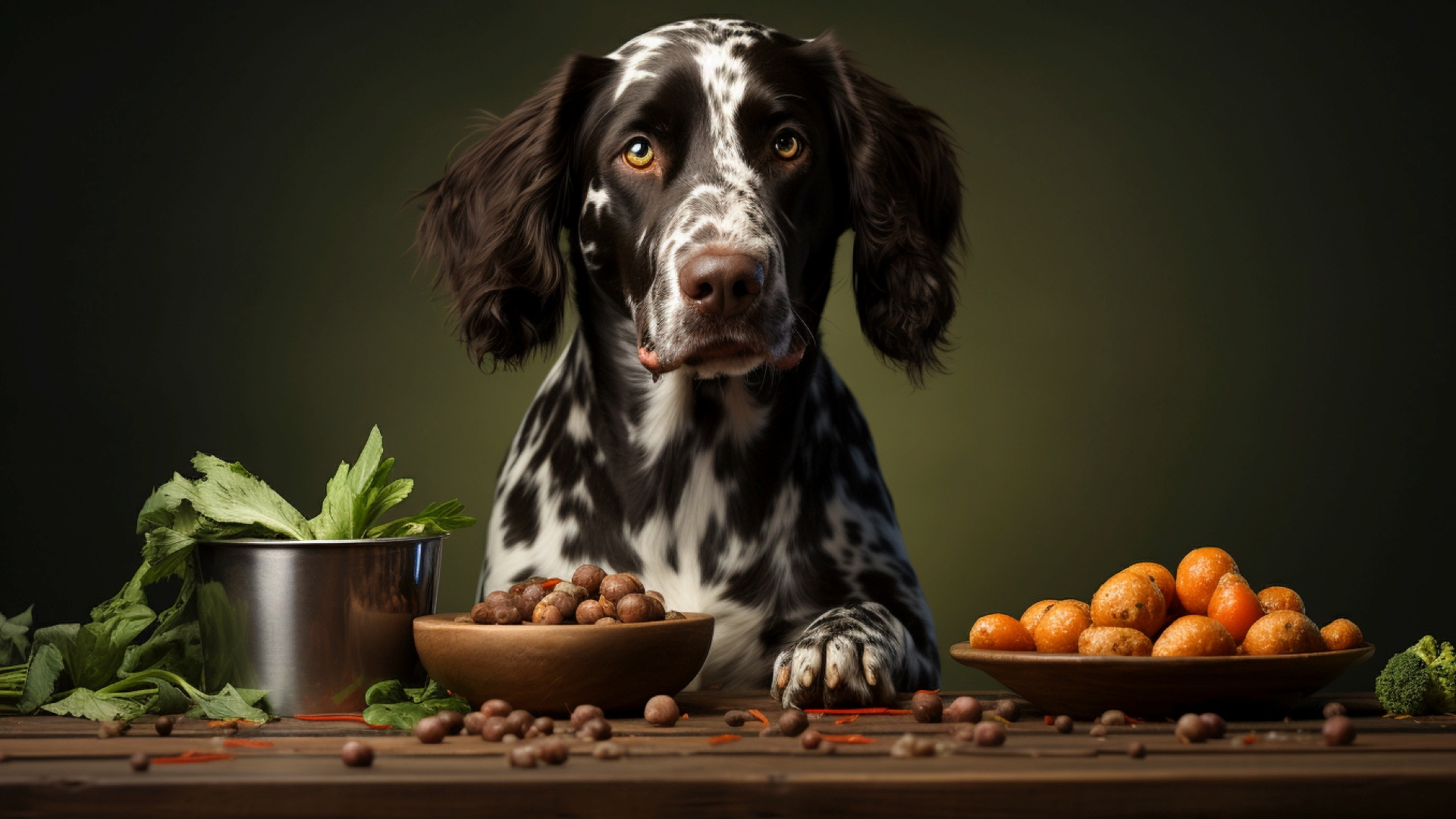Organic vs. Conventional Dog Food:
Making the Best Choice for Your Furry Friend
Summary:
Embarking on the great debate between organic and conventional dog food? Fret not, we're here to help you untangle this knot. Take a stroll with us through the bustling lanes of Portland pet markets, and let's dissect what 'organic' means in the world of pet food, understand the merits and demerits of both types of dog food, and find the perfect munchies for your tail-wagger.


As devoted pet owners, we incessantly seek the best for our four-legged family members. Navigating the pet food world can be like venturing into a labyrinth. It's an endless sea of products with one common denominator - the eternal debate between organic and conventional dog food.
Organic dog food, mirroring its human counterpart, signifies food produced devoid of synthetic pesticides, chemical fertilizers, antibiotics, or growth hormones. All the ingredients in the mix are naturally cultivated and lack artificial colors, flavors, or preservatives. High-quality organic options abound, from brands like Castor & Pollux Organix and Newman's Own Organic Dog Food, to specialized diets like Halo Holistic Dog Food for Seniors and A Pup Above Sous Vide Dog Food.
In contrast, conventional dog food is crafted using standard commercial production methods, which may include pesticides, chemical fertilizers, and antibiotics. While the label may not be as wholesome sounding as organic food, rest assured, brands such as Purina Pro Plan and Blue Buffalo Life Protection Formula adhere to strict nutritional standards providing balanced diets for dogs.
Organic dog food's key selling point is its potentially lower contamination and elevated nutritional content, sparking better health and vitality for your pet. Nevertheless, the steep production costs often trickle down to the consumers, making organic dog food a pricier choice compared to conventional dog food.
While conventional dog food may contain trace pesticides and other chemicals, all pet food sold in the United States meet the standards set by the Association of American Feed Control Officials (AAFCO). This ensures a balanced diet for your pet, irrespective of the organic or conventional label.
Your dog's individual needs, a factor often overlooked, should be at the forefront of this decision. Certain dogs may require specific diets due to health issues, age, breed, or lifestyle. Consulting with your vet or a pet nutritionist can help decode your dog's unique dietary needs. For special diet needs, there are brands like Royal Canin Veterinary Diet and Hill's Science Diet.
When switching from conventional to organic dog food, take a phased approach. Mix the new food with your dog's current food and gradually increase the new food's proportion while decreasing the current food's over a week.
The choice between organic and conventional dog food largely hinges on your priorities, budget, and your dog's specific needs. A balanced diet that suits your lifestyle and keeps your pet's tail wagging is the goal. Remember, it's not just about filling their bowls, but also their hearts.


